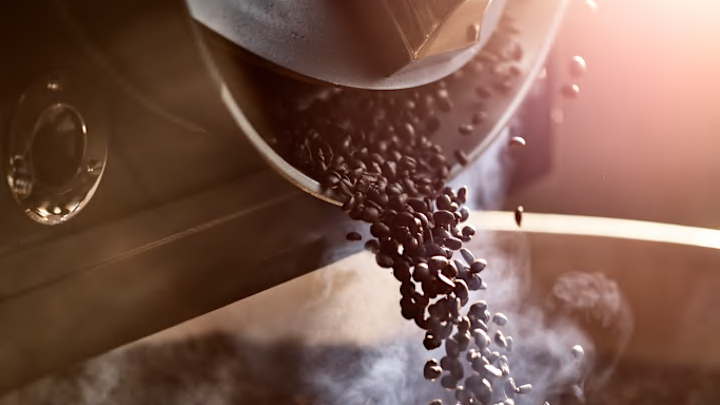Caffeine afficionados know there is no shortage of ultra-expensive coffee on today’s market. An Indonesian blend called Kopi Luwak, produced from coffee cherries that have been eaten, partially digested, and excreted by Asian palm civets, often sells for around $600 per pound.
Black Ivory from northern Thailand is more expensive still, selling for $2500 per kilogram ($1136 per pound). It’s produced with the help of Asian elephants, whose digestive enzymes break down the proteins of Arabica coffee beans, yielding a complex flavor of cacao, tobacco, red cherry, and grass which surely tastes much better than it sounds.
Now, a Panamanian blend has both of these beat. The most expensive coffee in the world is currently Elida Geisha Natural Torre, a blend manufactured by the Lamastus Family Estate. It recently took first place in the Best of Panamá 2024 auction, a yearly coffee competition founded in 1996, where it sold for a whopping $10,013 per kilogram ($4551 per pound).

The batch was sold to multiple buyers as opposed to one individual. In an Instagram post, the inventors of Elida Geisha announced that their product would be shipped to a selection of award-winning coffee companies around the world, including Saza Coffee (Japan), Grand Cru Coffee (Australia), Paradise Coffee Roasters (Hawaii), and Ruliweb (China).
Lamastus Family Estate, which also won first prize in Best of Panamá competitions in 2018 and 2019, was founded in 1918 by Kentucky native Robert Lamastus. Today, the estate is made up of three farms located on the slopes of Mount Baru, an active stratovolcano and Panama’s tallest mountain. The farms sit between 5500 and 8200 feet above sea level, providing the ideal climate for growing coffee.
Unlike Kopi Luwak and Black Ivory, the production of Elida Geisha does not involve the use of animal digestive tracts. According to the company’s website, Elida Geisha is made from Geisha beans, which are picked from their trees and immediately stored in airtight containers, where they remain for five days.
The estate employs an anaerobic slow dry (ASD) process, meaning the beans are dried for a longer period than they are on most coffee farms. While the estate’s other coffee beans are dried at a lower altitude, Elida Geisha is dried on the upper edges of the farm, where they remain for up to 40 days to bring out their intense cherry, lemongrass, and peach notes.
Like Thailand and Indonesia, Panama is known for producing some of the highest quality coffee on the planet. According to data from the International Trade Administration, the country exports more than 50,000 60-kilogram bags of coffee each year, and its tourism industry offers guided coffee farm tours that take participants deep into the countryside.
Discover More Facts About Coffee:
